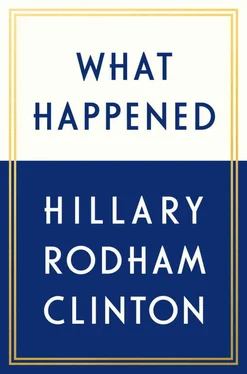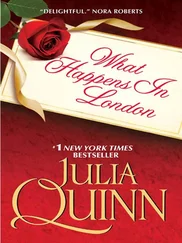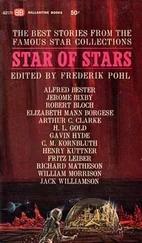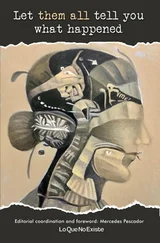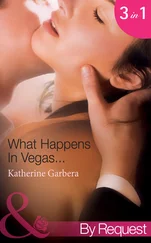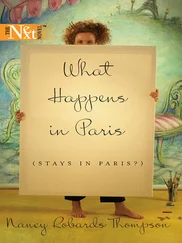For me, political campaigns have always been something to get through in order to be able to govern, which is the real prize. I’m not the most natural politician. I’m a lot better than I’m usually given credit for, but it’s true that I’ve always been more comfortable talking about others rather than myself. That made me an effective political spouse, surrogate, and officeholder, but I had to adjust when I became a candidate myself. At the beginning, I had to actively try to use the word I more. Luckily, I love meeting people, listening, learning, building relationships, working on policy, and trying to help solve problems. I would have loved to meet all 320 million Americans one at a time. But that’s not how campaigns work.
In the end, I came back to the part that’s most important to me. We Methodists are taught to “do all the good you can.” I knew that if I ran and won, I could do a world of good and help an awful lot of people.
Does that make me ambitious? I guess it does. But not in the sinister way that people often mean it. I did not want to be President because I want power for power’s sake. I wanted power to do what I could to help solve problems and prepare the country for the future. It’s audacious for anyone to believe he or she should be President, but I did.
I started calling policy experts, reading thick binders of memos, and making lists of problems that needed more thought. I got excited thinking about all the ways we could make the economy stronger and fairer, improve health care and expand coverage, make college more affordable and job training programs more effective, and tackle big challenges, such as climate change and terrorism. It was honestly a lot of fun.
I talked with John Podesta, a longtime friend who had been Bill’s Chief of Staff in the White House and was also a top advisor to President Obama. If I was going to do this again, I would need John’s help. He promised that if I ran, he’d leave the White House and become chairman of my campaign. He thought we could put together a fantastic team very quickly. An energetic grassroots group called Ready for Hillary was already drumming up support. All of that was very reassuring.
I thought back to what made me run for Senate the first time. It was the late 1990s and Democrats in New York were urging me to run, but I kept turning them down. No First Lady had ever done anything like that before. And I hadn’t run for office since I’d been student government president at Wellesley College.
One day I visited a school in New York with the tennis star Billie Jean King for an event promoting an HBO special about women in sports. Hanging above our heads was a big banner proclaiming the title of the film, Dare to Compete . Before my speech, the seventeen-year-old captain of the high school basketball team introduced me. Her name was Sofia Totti. As we shook hands, she bent down and whispered in my ear, “Dare to compete, Mrs. Clinton. Dare to compete.” Something just clicked. For years, I had been telling young women to step up, participate, go for what you believe in. How could I not be willing to do the same? Fifteen years later, I was asking myself the same question.
There wasn’t one dramatic moment where I declared, “I’m doing it!” Bill and I closed out 2014 with a trip to the beautiful home of our friends Oscar and Annette de la Renta in the Dominican Republic. We swam, ate good food, played cards, and thought about the future. By the time we got back, I was ready to run.
The most compelling argument is the hardest to say out loud: I was convinced that both Bill and Barack were right when they said I would be a better President than anyone else out there.
I also thought I’d win. I knew that Republicans had moved much further from the vital center of American politics than Democrats had, as nonpartisan political scientists have documented. But I still believed that the United States was a pretty sensible country. Previous generations faced much worse crises than anything we’ve seen, from the Civil War to the Great Depression, from World War II to the Cold War, and they responded by electing wise and talented leaders. Only rarely have Americans gotten carried away by extremes or enthralled by ideology, and never for long. Both major political parties, despite the madness of their respective nominating processes, nearly always managed to weed out the most extreme candidates. Before 2016, we’d never elected a President who flagrantly refused to abide by the basic standards of democracy and decency. If I was the best-qualified candidate, had good ideas about the future, held my own on the trail and in the debates, and demonstrated a capacity to get things done with both Republicans and Democrats, it was reasonable to believe I could get elected and be able to govern effectively.
That’s why I ran.
There are things I regret about the 2016 campaign, but the decision to run isn’t one of them.
I started this chapter with some lines from T. S. Eliot’s poem “East Coker” that I’ve always loved:
There is only the fight to recover what has been lost
And found and lost again and again: and now, under conditions
That seem unpropitious. But perhaps neither gain nor loss.
For us, there is only the trying. The rest is not our business.
When I first read that, as a teenager in Park Ridge, Illinois, it struck a chord somewhere deep inside, maybe in that place where dim ancestral memories of indomitable Welsh and English coal miners hid alongside half-understood stories from my mother’s childhood of privation and abandonment. “There is only the trying.”
I went back to that poem a few years later, in 1969, when my classmates at Wellesley asked me to speak at our graduation. Many of us were feeling dismayed and disillusioned by the Vietnam War and the racial injustice in America, the assassinations of Dr. Martin Luther King Jr. and Robert F. Kennedy, and our seeming inability to change our country’s course. My paraphrasing gave Eliot’s elegant English verse a Midwestern makeover: “There’s only the trying,” I told my classmates, “again and again and again; to win again what we’ve lost before.”
In the nearly fifty years since, it’s become a mantra for me and our family that, win or lose, it’s important to “get caught trying.” Whether you’re trying to win an election or pass a piece of legislation that will help millions of people, build a friendship or save a marriage, you’re never guaranteed success. But you are bound to try. Again and again and again.
I want to be thoroughly used up when I die, for the harder I work, the more I live. Life is no “brief candle” to me. It is a sort of splendid torch which I have got hold of for the moment; and I want to make it burn as brightly as possible before handing it on to future generations.
—George Bernard Shaw
You could say my campaign for President began with a snappy internet video filmed in April 2015 outside my home in Chappaqua. Or you could point to my formal announcement speech that June on Roosevelt Island in New York. But I think it started with something a lot more ordinary: a Chipotle burrito bowl.
If you’re wondering what I’m talking about, you probably don’t spend much time in the carnival fun house of cable and internet news. It was April 13, 2015, in Maumee, Ohio. Chipotle was a pit stop on my road trip from New York to Iowa, home of the first-in-the-nation caucus. It was a purposefully low-key trip. No press, no crowds. Just me, a few staff, and Secret Service agents. We bundled into an oversized black van I call “Scooby” because it reminds me of the Scooby-Doo Mystery Machine (our van has less shaggy psychedelic charm, but we love it just the same), and set out on our thousand-mile journey. I had a stack of memos to read and a long list of calls to make. I had also googled every NPR station from Westchester to Des Moines—all set for a long drive.
Читать дальше
